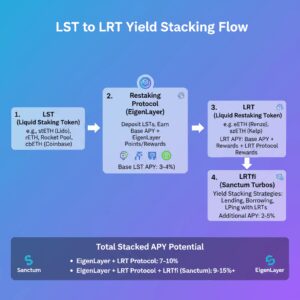
Completing an MBA is a significant achievement, marking the culmination of years of hard work, dedication, and academic rigor. As a recent MBA graduate, you’ve invested considerable time and resources into obtaining your degree. To leverage this valuable credential effectively and advance in your career, it’s crucial to adopt strategies that will help you stand out and succeed in the competitive job market. In this blog post, we’ll explore key strategies for maximizing your MBA degree and ensuring that you make the most of your educational investment.
1. Define Your Career Goals
One of the first steps in maximizing your MBA degree is to define your career goals clearly. Having a clear vision of where you want to go professionally will help you focus your efforts and make strategic decisions. Consider the following when defining your goals:
- Industry and Role: Identify the industry and role that align with your interests, skills, and values. Whether you’re interested in finance, consulting, technology, or entrepreneurship, having a specific focus will guide your job search and career development.
- Short-Term and Long-Term Goals: Set both short-term and long-term career goals. Short-term goals might include landing your first post-MBA job or gaining experience in a specific area, while long-term goals could involve achieving leadership positions or starting your own business.
- Skill Development: Determine the skills and competencies needed to achieve your goals. Assess any gaps and seek opportunities to develop these skills through additional training, certifications, or professional experiences.
2. Network Strategically
Networking is a powerful tool for career advancement and can play a critical role in maximizing your MBA degree. Building and leveraging your professional network can open doors to job opportunities, mentorship, and industry insights. Here’s how to network effectively:
- Alumni Network: Tap into your MBA program’s alumni network. Alumni can offer valuable advice, introduce you to potential employers, and provide insights into industry trends. Attend alumni events and engage with alumni associations to build connections.
- Industry Events and Conferences: Participate in industry-specific events, conferences, and seminars. These gatherings provide opportunities to meet professionals in your field, learn about industry developments, and expand your network.
- LinkedIn and Social Media: Maintain an active and professional presence on LinkedIn. Connect with industry professionals, join relevant groups, and share content that reflects your expertise and interests. Engage with your network by commenting on posts and participating in discussions.
3. Leverage Your MBA Skills and Knowledge
Your MBA program has equipped you with a diverse set of skills and knowledge that can be applied to various professional scenarios. To maximize your degree, effectively leverage these skills in your career:
- Analytical Skills: Apply the analytical skills gained during your MBA, such as data analysis, financial modeling, and strategic thinking, to solve complex problems and make informed decisions in your role.
- Leadership and Management: Utilize the leadership and management skills developed through case studies, team projects, and coursework. Demonstrate your ability to lead teams, manage projects, and drive organizational success.
- Communication Skills: Use your enhanced communication skills to articulate your ideas clearly, negotiate effectively, and build strong relationships with colleagues, clients, and stakeholders.
4. Seek Mentorship and Guidance
Mentorship can be a valuable resource for recent MBA graduates, providing guidance, support, and insights as you navigate your career. Consider seeking mentorship from experienced professionals who can offer advice and share their experiences:
- Identify Potential Mentors: Look for mentors within your industry or organization who have achieved success in areas relevant to your career goals. Consider reaching out to former professors, industry leaders, or senior colleagues.
- Build a Relationship: Approach potential mentors with a clear request for guidance and establish a mutually beneficial relationship. Be respectful of their time and seek their input on specific challenges or opportunities you’re facing.
- Act on Feedback: Take the advice and feedback from your mentor seriously and implement their suggestions. Regularly update them on your progress and express your appreciation for their support.
5. Stay Informed and Adaptable
The business world is dynamic, and staying informed about industry trends and developments is crucial for career success. Being adaptable and open to change can help you stay ahead and seize new opportunities:
- Continuous Learning: Commit to lifelong learning by pursuing additional courses, certifications, or professional development opportunities. Stay updated on industry trends, emerging technologies, and best practices.
- Adapt to Change: Be flexible and open to adapting your career plans based on evolving market conditions, new opportunities, or changes in your interests. Embrace change as a chance to grow and explore new avenues.
- Industry Publications and News: Subscribe to industry publications, follow relevant blogs, and stay updated on business news to remain informed about current events and trends that may impact your field.
6. Build a Strong Personal Brand
Creating and maintaining a strong personal brand can enhance your professional reputation and set you apart from other candidates. Your personal brand should reflect your expertise, values, and unique strengths:
- Develop Your Online Presence: Build a professional online presence through LinkedIn and other relevant platforms. Highlight your achievements, skills, and experiences, and showcase your expertise through articles, posts, or presentations.
- Create a Professional Portfolio: Develop a portfolio that showcases your work, projects, and accomplishments. Include case studies, presentations, and other materials that demonstrate your capabilities and impact.
- Maintain Consistency: Ensure that your personal brand is consistent across all platforms and interactions. Present yourself professionally in your online profiles, resume, and during networking opportunities.
7. Focus on Professional Development
Investing in your professional development is essential for career growth and maximizing the value of your MBA degree. Focus on areas that will enhance your skills and career prospects:
- Leadership Training: Participate in leadership development programs or workshops to strengthen your leadership abilities and prepare for higher-level roles.
- Specialized Certifications: Obtain certifications relevant to your field or industry. Specialized credentials can enhance your qualifications and demonstrate your commitment to professional growth.
- Soft Skills Development: Work on developing soft skills such as emotional intelligence, negotiation, and conflict resolution. These skills are crucial for effective communication and building strong relationships in the workplace.
8. Set and Evaluate Your Career Progress
Regularly assess your career progress to ensure you’re on track to achieve your goals. Set measurable objectives and evaluate your performance:
- Track Achievements: Keep a record of your achievements, milestones, and career developments. This documentation can be useful for performance reviews, job applications, and career planning.
- Reevaluate Goals: Periodically reevaluate your career goals and adjust them as needed. Consider whether your goals still align with your interests and aspirations, and make any necessary changes to your career plan.
- Seek Feedback: Request feedback from supervisors, colleagues, and mentors to gain insights into your performance and areas for improvement. Use this feedback to make informed decisions and enhance your career growth.
Maximizing your MBA degree involves a combination of strategic planning, networking, leveraging your skills, and continuous development. By defining clear career goals, building a strong professional network, applying your MBA skills effectively, and staying informed about industry trends, you can set yourself up for success in the competitive job market. Embrace opportunities for growth, seek mentorship, and invest in your professional development to make the most of your MBA degree and achieve your career aspirations.
Unlock Full Article
Watch a quick video to get instant access.











